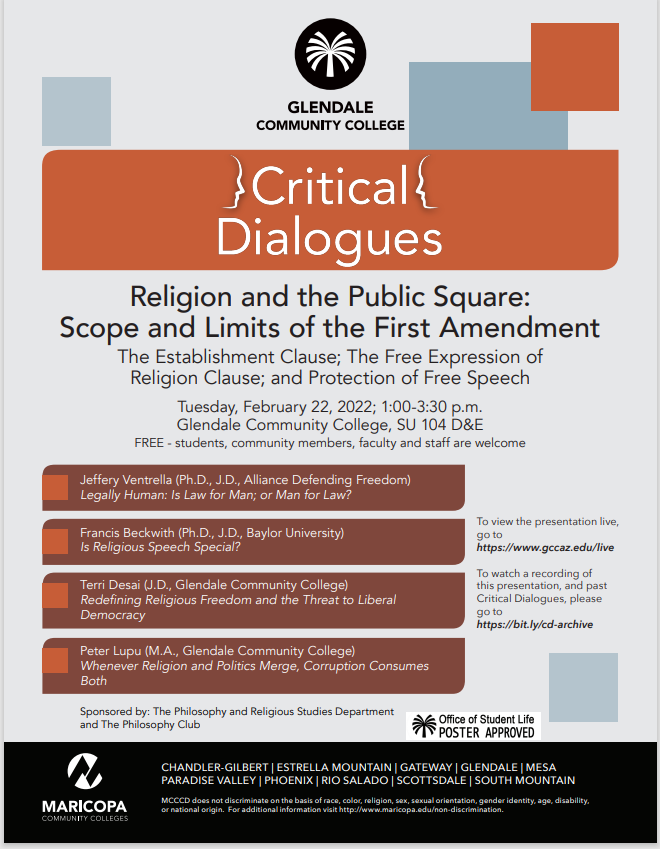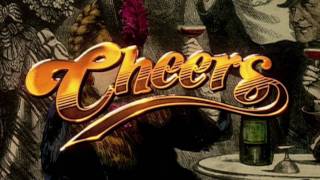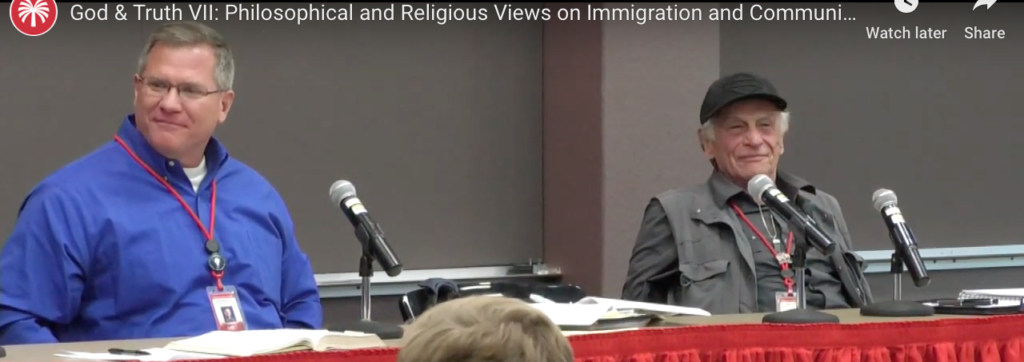The Other DEI… Diversity in Examining Ideas
There is the need for civil dialogue on the complex and controversial issues of our time. It should be one of the tasks of higher education to illuminate the path toward such a goal. This quest, however, is fraught with danger in that there are some who would rather shut down dialogue and debate rather than engage in rational intellectual interchange. The examination of ideas and perspectives different from one’s own can be disorienting. I often remind students to embrace the cognitive dissonance they may at times experience as they learn new philosophical ideas, rather than simply run from it. Even if one does not change their views on a given topic, the challenge of working through the intellectual discomfort of foreign ideas can lead to a deeper understanding and appreciation of the views which they hold. I hope all would resonate with the words found in the Arizona Revised Statutes when they state:
“It is not the proper role of an institution of higher education to shield individuals from speech protected by the first amendment, including, without limitation, ideas and opinions that may be unwelcome, disagreeable or deeply offensive.”
Toward this end of promoting free exchange in the marketplace of ideas, the GCC Philosophy and Religious Studies Department along with the GCC Philosophy Club continues to sponsor its bi-annual panel discussions—God & Truth; Critical Dialogues. These events allow a spectrum of speakers to engage significant and, sometimes, controversial topics in an atmosphere of mutual respect and reasoned engagement. The issues discussed run the gamut from religious issues such as the meaning of life and God and morality to the political and cultural issues of transgenderism and religious rights and civil rights.
Our recent Critical Dialogues panel was titled “Religion and the Public Square: Scope and Limits of the First Amendment” and, as the title indicates, dealt with the extent of religious speech and expression in light of other recognized rights.

We are already planning our next Critical Dialogues panel discussion set for October and we are planning to tackle one of the most contentious issues in our culture—Abortion. Dealing with a topic which is prone to sloganeering and emotion is challenging and we are hopeful of examining the philosophical and legal aspects of this debate from different perspectives. And, as always, we will be seeking to model to our students, staff, and community how to have a serious and substantive conversation in an engaging and civil manner.
I wrote a piece for the 6×6 blog series back in February 2020 (before Covid!)—Celebrating the Value of Free Speech!—and I ended that piece with the following words which still seem apropos:
The Need for Vigilance
The culture of free expression and civil disagreement is healthy at Glendale Community College. This is partly a function of the laws enshrined in the Arizona statutes as well as the legal precedents handed down in defense of the Maricopa County Community College District. For example, in a 2010 decision by the U.S. Court of Appeals for the Ninth Circuit—Rodriquez v. Maricopa County Community College District—these powerful words are found:
“Without the right to stand against society’s most strongly-held convictions, the marketplace of ideas would decline into a boutique of the banal, as the urge to censor is greatest where debate is most disquieting and orthodoxy most entrenched. The right to provoke, offend and shock lies at the core of the First Amendment. This is particularly so on college campuses.”
Laws and legal precedent are necessary but not sufficient. There is always the need for vigilance. There must continue to be a firm commitment to freedom on the part of individuals who inhabit our institutions of higher learning. As Alan Charles Kors and Harvey A. Silverglate remind us, “Freedom dies in the heart and will before it dies in the law.” It is for this reason that institutions like Glendale Community College with their commitment to the free exchange of ideas ought to be celebrated and emulated.


